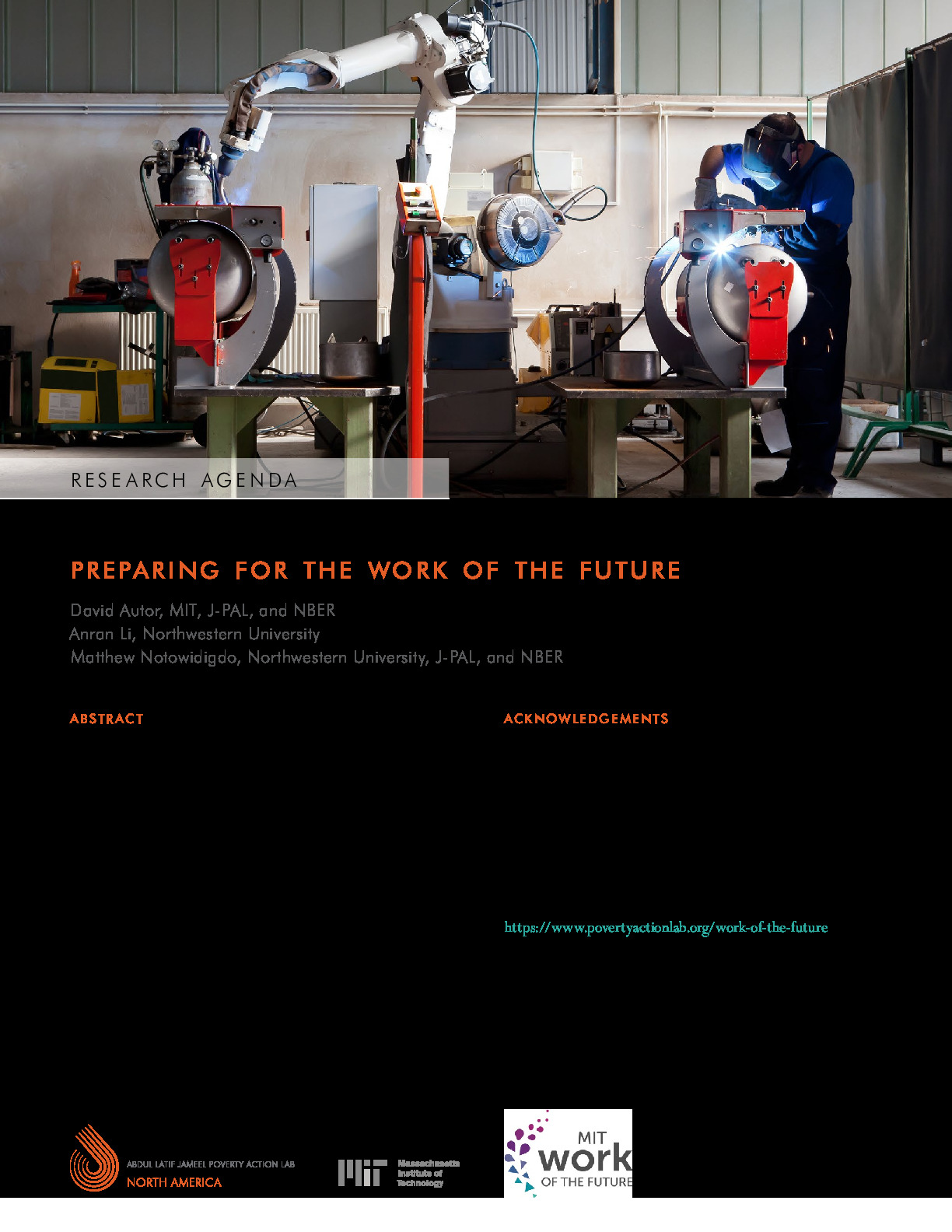Preparing for the Work of the Future
Breakthroughs in artificial intelligence and robotics are rapidly changing the terms of comparative advantage between humans and machines in the workplace, with potentially profound implications for labor market operation and for the opportunities available to human workers of different skill and education levels. This overview paper discusses four areas where research is needed to identify strategies for managing these changes in ways that benefit workers, firms, and the broader economy: (1) skills training, (2) postsecondary education, (3) alternative work arrangements and the “gig economy,” and (4) management practices. In each area, we highlight key findings from recent studies and discuss opportunities for further innovative experimentation to evaluate program and policy options, pilot novel interventions, and help workers, firms, and governments prepare for the “Work of the Future.”
